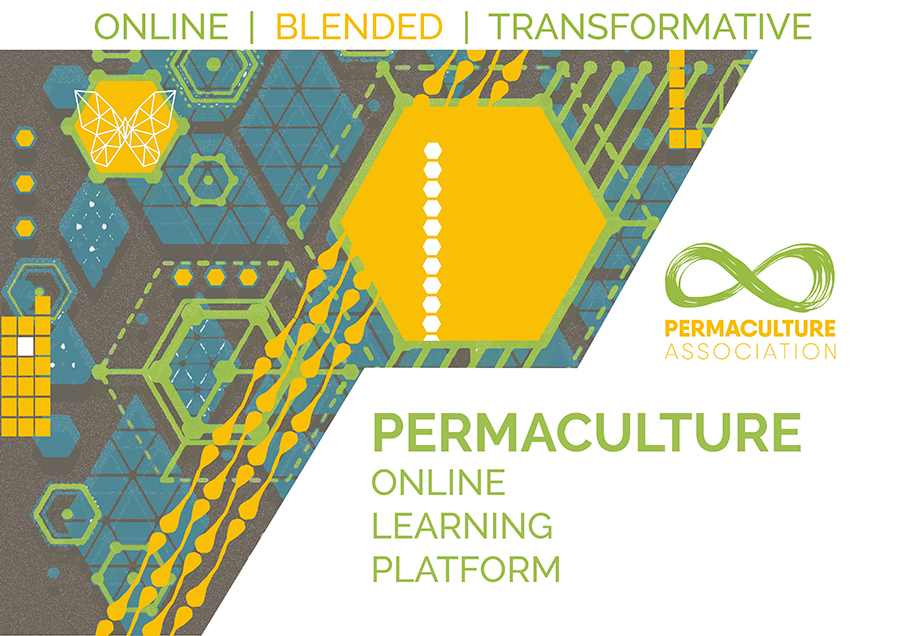 When most people think of online learning they think of MOOCs - Massive Open Online Courses. These are what platforms such as FutureLearn, Udemy and Coursera provide. Many people who have taken online courses have taken a MOOC course and aren't aware of any other format in online learning.
When most people think of online learning they think of MOOCs - Massive Open Online Courses. These are what platforms such as FutureLearn, Udemy and Coursera provide. Many people who have taken online courses have taken a MOOC course and aren't aware of any other format in online learning.
But what does Massive Open Online Course actually mean? It is Massive - so it is available to many thousands of people. It's open - so often there are no restrictions in when and how you can take it. And it's an online course - you take it online, often with no interaction from teacher/s.
With the second wave of MOOCs great exposure was offered, there were many more sign ups and greater completion rates on shorter courses, but there are questions over the quality of learning taking place and the accountability of these courses.
Permaculture offers transformative education and many teachers and students believe that this shift in perception is achieved through the immersive and face to face experiences offered in residential settings and seeing permaculture in practise in LAND centres and permaculture projects.
Can online learning achieve this transformative effect? We believe the future of online learning is in its blended format. Blended learning is when a student learns at least in part through online learning, with some element of student control over time, place, path, and/or pace.
This could mean adapting your existing face to face curriculum for an online format. But it doesn't need to be taught solely online.
Once your curriculum is remote ready, students can choose to take some elements at their own pace and you can choose which elements to deliver face to face, virtually through a live presentation, meetings or webinar.
There are many benefits to becoming remote ready:
-
You can continue teaching when it’s difficult to see students face to face (illness, climate travel restrictions, accessibility issues for students, pandemics etc)
-
You are reaching a much wider audience - you can now offer education to all students, not just those that can attend your courses.
-
You only need to build the course once, and sell it multiple times.
But will this work in practice? These 5 pointers for quality online learning were taken from this article 'The Future of Online Learning: STEVEs (Short Tiny Exclusive Virtual Experiences)' and I will expand on them here to explain the permaculture associations plan for online learning.
Short Tiny Exclusive Virtual Experiences (STEVEs) deploy a wide range of tactics to bring accountability back into the process.
Short: anything that is supposed to last a long time must necessarily be low intensity, which is exactly the opposite of what we’re going for. Anything that can be done at any time, tends to get done at no time. Using this concept the permaculture association’s online courses will be short modular courses which can be built up to make larger certifications.
Tiny: scale breeds anonymity, which is the arch-nemesis of accountability. Our certified courses will offer either limited enrollment that allows personal interaction with the instructor or peer or small group structures that allow interaction with mentors or fellow learners. These interactions can be via zoom meetings or face to face (once social distancing is over).
Exclusive: a quirk of human psychology is that we don’t value anything that is available in abundance. Exclusivity, through application and selection processes, time-limited enrollment, or referral-only is a powerful signal that cuts through ambivalence. We will be offering discounts and first access to our courses to permaculture association members. And some of our more specialist courses such as the diploma, blended LAND based courses, and tutor-led courses will have application processes.
Virtual: these courses still take place online, but using a whole new generation of collaboration and creation tools. Amongst other virtual tools, our experienced teachers can offer online group presentation sessions & webinars, 1-to-1 teacher’s drop-in sessions and provide guilds for learners to engage with each other and build community.
Experiences: this new generation steps away from the pure efficiency of highly condensed media as seen in MOOC's, instead it combines the unpredictability, humanity, and connection of live interaction with qualities borrowed from boot camps: short, very intense, skill-based, forces you out of your comfort zone, develops camaraderie, and … you have to perform to stay in. For example, you could take the whole course via zoom, you will still be able to present your designs to your group and be assessed by your tutor.
In many ways, STEVEs represent a return to intimate, almost tribal learning environments that are most natural for humans. We can utilise the personality of our fantastic teachers with teacher-led sessions and encourage students to engage and practise their learning together - we learn best from people we like and connect with.
Not all the content in the linked article sits with our values. But here are some more tips that we do plan to utilise:
-
Webinars (giving a preview of what your content will contain, leaving the how for those who want more)
-
Summits (bringing together a bunch of content creators for “panels” or “interviews,” allowing them to communicate with each others’ audiences)
-
Free member courses (as previews or introductions to more advanced, paid ones)
-
Guest instructors or interviews (providing your boot camp as a platform for a bonus session or interview with another content creator in a related niche, providing value to your audience as well as a cross-promotional opportunity)
-
Utilise existing platforms (publishers, aggregators, curators, thought leaders, publications, email lists, practitioner communities, traditional media, Facebook groups, etc.).
Why host your course on the Permaculture Association platform?
 The UK is globally recognised for having a quality permaculture design curriculum and well respected certifying teachers register - we bring together years of expertise in online learning, training, design, communications, video creation and more.
The UK is globally recognised for having a quality permaculture design curriculum and well respected certifying teachers register - we bring together years of expertise in online learning, training, design, communications, video creation and more.
We have already co-produced a successful MOOC on FutureLearn with GROW and are working with several organisations to deliver climate focused and transformative blended education online.
We can support you in a range of areas including how to migrate face-to-face training online, how to structure your course, branding, graphic design and more.
If you host your course with us, you do not need to pay for a platform and maintain it. We’ll also take care of all the admin for you and transfer your earnings every month. As part of our ongoing communications strategy, we provide continual marketing and traffic to your course.
As a membership charity our goal is to support our networks and increase the reach of permaculture - we want to support all our members to grow their educational packages and deliver top quality education online. We think by integrating our efforts we can achieve our goals - using cooperation rather than competition. By integrating our efforts we can all ensure we don't replicate / saturate one topic. Connections build resilience. Read our guidance for applying to host your course on our platform now.
We are looking forward to launching our platform later in the year, but in the meantime, we hope our Educator members will join us for a discussion on 27 April 2020 about developing a Commons approach to our online learning platform.
We have guidance here for building your course content to produce for our platform.
Members of the Permaculture Association can add their events and course listings to the website noticeboard. You can too by becoming a member today. In addition, we will send you monthly news, the members journal Permaculture Works, and more!